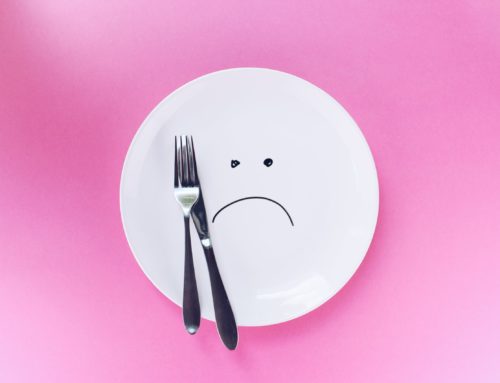The Struggle is Real.
Food serves many purposes. Ideally, it nourishes our bodies, provides fuel for energy, and makes our taste buds happy! For some, eating can feel like a double-edged sword: it can be a source of comfort and relief because it provides an escape from stress. And, eating can be a source of pain because it can feel like an endless, unwanted cycle.
For those who struggle with binge eating, food can lead to anxiety and shame. This eating pattern has many names: emotional eating, over-eating, compulsive eating, food addiction, etc. They all mean the same thing: that eating has become an adaptation to dealing with negative feelings and experiences. And then a terrible cycle ensues: eating, shame, and then fasting or dieting to “do better.” This cycle can feel lonely and endless. And hence the question, “Why Can’t I Stop Eating?”
The answer may be Binge Eating Disorder (BED). BED is the most common eating disorder, however it was only recently recognized officially. What can cause BED? There are certain factors that can contribute:
- Family genetics
- Inattentive parents and childhood neglect
- Eating patterns modeled by family members or caregivers
- Perfectionism expected by parents
- Childhood trauma
- Negative comments
Not all patterns of over-eating constitute an eating disorder. Sometimes, people can simply eat too much, have a “sweet tooth,” or just “live to eat.” So what’s the difference between stress eating and actual problematic eating patterns?
5 SIGNS OF BINGE EATING DISORDER:
Eating When NOT Hungry.
Eating driven by emotions or stress rather than actual hunger is a hallmark of Binge Eating Disorder. Reaching for snacks when overwhelmed, or even numb, can signal that something serious is happening.
Secret Eating.
Hiding food or eating in secret present as ways to cope with bingeing. Others may notice missing food or hidden wrappers in random places.
Loss of Control.
This one is a key feature of binge eating. Periods of eating may be impulsive and feel out of control because it continues beyond the point of fullness. Or, eating may occur through grazing throughout the day which also may feel like loss of control.
Shame.
Feelings of guilt, shame, or distress may surround eating patterns for anyone who worries about over-eating. Those struggling with their relationship with food may experience depression due to hopelessness about their eating habits.
Frequent Dieting.
Tried every diet fad out there? Are you trying a new cleanse, or cutting out a major food group? If so, this could be a sign of Binge Eating Disorder. People who experience compulsive eating often restrict food or calories in an effort to control their weight or to compensate for eating “bad.”
If these signs sound familiar, there are steps to take for recovery. Communities provide hope and camaraderie with others going through the same experience. Below are some tips to help:
3 TIPS TO REDUCE SHAME:
Gather Info.
There are several resources available for help and more information about Binge Eating Disorder. The National Eating Disorders Association (NEDA) provides helpful content and tips. Recovery is possible!
Self-Compassion.
Be gentle. Eating patterns that are presently in the way developed long ago in an effort to feel safe. Maybe this began in childhood, and current over-eating patterns happen because of a painful trigger of the past. Remember that during moments of shame. These instances deserve so much care and compassion.
Find the Beauty.
Body image and self-esteem can be negatively impacted from feelings of shame and distress surrounding food. Look in the mirror and focus on what feels attractive or positive. If it’s easier, start with internal characteristics (I’m kind, generous, etc.) and then move outward (I have great legs/eyes, etc.). Finding your beautiful attributes can be a great reminder of our worthiness, and helps to shift the focus beyond food and eating patterns.
If you or a loved one is in need of support, Low Country Counseling offers specialized therapy for Individuals, Moms, Couples, Families, Children, and Teens. Contact us for any questions you need answered or to schedule an appointment. Help is available. You are not alone!
Hope Starts HERE.






